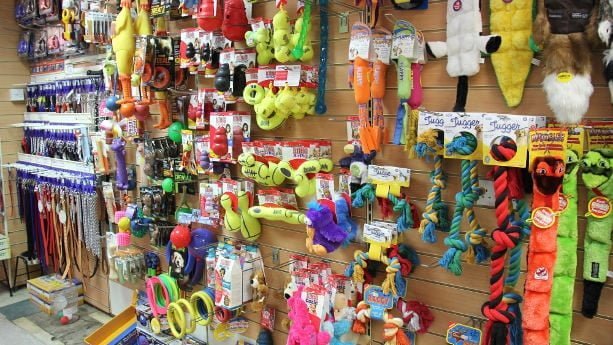The biggest and fastest-growing e-commerce market in the world is still China. This makes it one of the best places to open an online store in 2025. Millions of people shop every day on platforms like Tmall, Taobao, JD.com, Pinduoduo, and cross-border e-commerce sites. This means that entrepreneurs and small companies can always meet customer needs. Trends that are on the rise this year include health and wellness, eco-friendly products, digital gadgets, smart home devices, fashion accessories, beauty and skincare, luxury resale, pet supplies, sustainable food delivery, and educational tools for kids. These are the ten best ideas for online stores in China this year.
In China, shoppers are very mobile. Most of their purchases are made on their phones using apps like WeChat and Douyin. This means that online stores need to make sure that mobile shoppers have a great experience and add easy-to-use payment options like Alipay and WeChat Pay. Live streaming e-commerce and celebrity marketing are also still big trends in the digital world, which means that store owners have new ways to get more customers and make more money. This list of the best online store ideas in China for 2025 shows you which businesses have a lot of potential for growth and are very popular with customers. The guide shows business owners what they should focus on to build successful online stores in China and stay competitive in a digital economy that is changing quickly. It covers everything from cheap everyday items to high-end niche markets.
Top Ten Best Ideas For Online Stores In China (2025)
10. Educational Tools and Digital Learning Resources

China’s appetite for digital learning continues to grow as parents look for ways to support their children’s education outside traditional classrooms. Online stores that provide interactive courses, coding kits, language learning materials, and smart toys are well positioned in 2025. Families increasingly want engaging content that combines entertainment with measurable progress, making gamified learning platforms and bilingual programs especially attractive.
A store offering age-specific bundles of books, videos, and activity sets can draw consistent traffic. Short demonstration clips and downloadable samples help parents feel confident about quality. With school competition intensifying in major cities, the demand for creative and skill-oriented learning resources shows no signs of slowing. Subscription boxes that deliver monthly challenges or themed kits also appeal to households seeking variety and structure.
9. Fresh Grocery and Instant Food Delivery

Urban lifestyles in China are driving a massive shift toward quick access to fresh groceries and ready-to-cook meals. Shoppers expect vegetables, fruits, and meats to be delivered within an hour in top cities, while curated organic produce boxes are gaining attention among younger families. Online stores that emphasize traceability, local sourcing, and eco-friendly packaging create strong loyalty. Clear delivery time slots and temperature-controlled logistics reassure customers that freshness is guaranteed.
Many platforms are now integrating with WeChat and Douyin mini programs to make checkout seamless. Beyond everyday grocery needs, meal kits and specialty ingredients for popular cuisines such as hotpot or sushi bring an added layer of excitement. Instant food delivery that combines convenience with reliability has become one of the fastest rising categories in the Chinese digital market.
8. Pet Supplies and Care Products

The pet economy in China is expanding rapidly as more households embrace cats, dogs, and even exotic animals as family members. Online stores dedicated to premium food, organic treats, grooming kits, and veterinary supplements have captured the attention of urban pet owners. High-quality nutrition and specialty diets for different breeds are particularly in demand, along with innovative accessories such as smart feeders and water fountains.
Customers are eager for reliable information on pet health, so stores that provide educational content alongside products earn greater trust. Starter kits for new pet owners, bundled with training guides and essential supplies, also perform strongly. As telehealth services for pets become more common, combining physical products with access to virtual veterinary consultations gives online pet shops a competitive edge. Loyalty programs and fast reordering for recurring items like food and litter further strengthen customer relationships.
7. Natural Beauty and Skincare
![]()
Chinese consumers are turning to skincare and cosmetics that prioritize clean formulations, transparency, and visible results. Online stores offering natural serums, sun protection, herbal masks, and cruelty-free beauty products are experiencing rising demand. Shoppers are particularly drawn to items that address sensitive skin, hydration, and anti-pollution care, making these strong focus areas for new businesses. Video demonstrations that show product texture and application help overcome hesitation, while trial-sized bundles encourage first-time buyers to explore premium lines.
Live streaming has become a major driver of beauty sales, as influencers and professionals showcase products in real time and answer questions directly. Clear labelling of ingredients, visible quality testing, and reliable after-sales service are essential to build trust in this competitive sector. In 2025, natural beauty remains not just a passing trend but a lifestyle choice shaping consumer habits.
6. Smart Gadgets and Connected Home Devices

Technology continues to shape shopping habits, with smart home devices gaining wide popularity across Chinese households. Online stores that specialize in connected gadgets such as speakers, fitness wearables, air purifiers, and portable chargers are seeing strong momentum. Consumers appreciate products that simplify daily routines, improve energy efficiency, or enhance security. Detailed setup guides, compatibility notes, and video tutorials can help reduce confusion and boost confidence for first-time buyers.
With more people adopting healthier lifestyles, smart health devices such as body monitors and sleep trackers are also thriving. Bundling accessories or offering installation services further increases customer satisfaction. Since reliability and ease of use matter most in this category, strong after-sales support and quick replacement policies play an important role in long-term success.
5. Cross-Border Online Stores for Imported Brands

Imported goods continue to enjoy strong demand in China, particularly in categories like baby formula, cosmetics, luxury food, and personal care. Shoppers view foreign products as symbols of safety and quality, making cross-border e-commerce a powerful channel. Stores that showcase authenticity certificates, batch tracking, and transparent logistics build significant trust. International beauty brands, organic health supplements, and gourmet snacks are especially attractive to middle-class families and young professionals.
Seasonal gift sets featuring imported wines or skincare collections also perform well during festivals. Platforms such as Tmall Global and JD Worldwide have created easier entry points, but niche online stores with unique assortments can stand out. Offering clear shipping timelines and multilingual customer service ensures a smoother shopping experience for international goods.
4. AI-Driven Personalized Shopping Experiences

Artificial intelligence is transforming how Chinese consumers interact with online stores. Personalized recommendations, intelligent chat assistants, and dynamic product displays are redefining convenience. Stores that use AI to suggest relevant items based on browsing behavior or past purchases create an engaging and tailored shopping journey. Virtual try-on tools for clothing and beauty, as well as smart chatbots that answer detailed questions, improve conversion rates.
Shoppers now expect a sense of customization rather than generic product listings, and businesses that deliver this gain stronger loyalty. AI also helps optimize bundles, seasonal offers, and restocking reminders to keep buyers engaged. Transparency about how recommendations are generated helps reassure customers while encouraging them to rely on technology for decision making. In 2025, personalization is no longer optional; it has become the foundation of online shopping in China.
3. Social Commerce and Live Streaming Shops

Shopping on social platforms is now a daily habit for millions of Chinese consumers. Mini stores on Douyin, Xiaohongshu, and WeChat turn entertainment into instant shopping, with live streaming as the centerpiece. Viewers are drawn to interactive sessions where products are demonstrated, questions are answered, and discounts are offered in real time. Short videos and authentic reviews carry more weight than traditional advertising, making this form of commerce extremely effective.
Successful stores maintain a content library of demonstrations, tutorials, and behind-the-scenes clips to keep audiences engaged. Micro-influencers with dedicated communities often generate higher conversions than broad celebrity campaigns. Limited-time promotions during streams create urgency, while post-event follow-ups encourage repeat purchases. For new businesses, social commerce offers not just visibility but also community-driven growth that builds lasting trust.
2. Health and Wellness Products

The health and wellness industry in China has expanded rapidly as consumers focus on immunity, fitness, and everyday balance. Online stores specializing in vitamins, herbal remedies, protein supplements, and functional foods are flourishing in 2025. Products that blend traditional Chinese medicine with modern nutrition hold particular appeal, as they combine cultural familiarity with scientific credibility. Beauty supplements such as collagen powders and detox teas are especially popular among younger women.
Successful stores provide transparent lab reports, dosage instructions, and educational content to reassure customers. Offering health consultations or curated wellness bundles further enhances the shopping experience. The rise of fitness apps and gym culture also drives demand for sports nutrition, energy boosters, and recovery aids. Health has become not just a necessity but a lifestyle choice, giving this category enormous growth potential.
1. Pre-Owned Luxury and Designer Resale

Resale of luxury goods has become one of the most powerful segments in China’s e-commerce landscape. Consumers who desire designer fashion and accessories are turning to trusted platforms that offer authenticated pre-owned items. Online stores focusing on handbags, watches, and limited-edition sneakers from brands such as Louis Vuitton, Gucci, and Hermès are experiencing rapid growth. Transparency is crucial, with professional authentication, detailed product photography, and condition grading ensuring buyer confidence.
Shoppers are also motivated by sustainability, as resale reduces waste while making high-end goods more accessible. Trade-in programs and consignment services keep inventories fresh and encourage repeat visits. Social proof through influencer unboxings and expert appraisals adds further credibility. In 2025, the pre-owned luxury sector represents not just an affordable way to shop but also a cultural shift toward smarter consumption.

